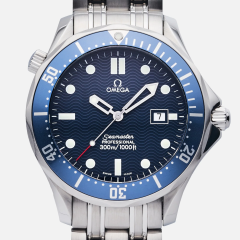Cousins battle with the Swatch Group is now heading to the High Court in Londo
-
Recently Browsing
- No registered users viewing this page.
-
Topics
-
Posts
-
By Neverenoughwatches · Posted
I was thinking that yesterday, thats one place where epilame should be, around the backside of the impulse face . -
Thanks both, I hadn't considered expansion as the cause, I'll take another look at it.
-
Just realised my previous reply could be misunderstood. I epilame treat the pallet stones (not the entire fork) but I do not let it run dry before applying the Moebius 9415. George Daniels is likely turning in his grave over the use of epilame, oiling, and the use of the Swiss lever escapement.
-
ha ha, mine used to look like a Saturday morning Tiswas Phantom Flan Flinger did it.
-
By Neverenoughwatches · Posted
I dont use epilame at all just 9415, thixotropic oil that changes viscosity when its struck. Epilame and 9415 = belt and braces ?
-









Recommended Posts
Join the conversation
You can post now and register later. If you have an account, sign in now to post with your account.
Note: Your post will require moderator approval before it will be visible.